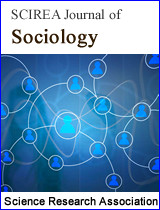Saul Kripke : Reference of a name is not determined by its sense
DOI: 10.54647/sociology841105 63 Downloads 13320 Views
Author(s)
Abstract
The concept of essence has played an important role in the history and development of philosophy; and in no branch of the discipline is its importance more manifest than in metaphysics. Its significance for metaphysics is perhaps attributable to two main sources. In the first place, the concept may be used to characterize what the subject or at least part of it, is about. For one of the central concerns of metaphysics is with the identity of things, with what they are. But the metaphysician is not interested in every property of the objects under consideration. In asking ‘what is a person?’, for example, he does not want to be told that every person has a deep desire to be loved, even if this is in fact the case.What then distinguishes the properties of interest to him? What is it about a property which makes it bear, in the metaphysically significant sense of the phrase, on what an object is? It is in answer to this question that appeal is naturally made to the concept of essence. For what appears to distinguish the intended properties is that they are essential to their bearers and what makes it accidental?
Keywords
De dicto,de re, rigid designators, non-rigid designator, transworld identity
Cite this paper
Sagarika Datta,
Saul Kripke : Reference of a name is not determined by its sense
, SCIREA Journal of Sociology.
Volume 7, Issue 4, August 2023 | PP. 200-221.
10.54647/sociology841105
References
| [ 1 ] | Fine K, ‘Essence and Modality’, Metaphysics : An Anthology, (ed)Jaegwon Kim, Daniel Z. Korman and Ernest Sosa, Blackwell Publishers, 2012 |
| [ 2 ] | Fine, K, Modality and Tense, Oxford University, Oxford, 1964 |
| [ 3 ] | Kripke S, Naming and Necessity’, Harvard University Press Cambridge, Massachusetts 1980 |
| [ 4 ] | Locke, J. An Essay Concerning Human Understanding, Book II (P. H. Nidditch, Ed.). Clarendon, Oxford, 1971 |
| [ 5 ] | Munitz K.M, Contemporary Analytic Philosophy, Pearson College, London,1981 |
| [ 6 ] | Russell .B, “On Denoting” Munitz K. M Contemporary Analytic Philosophy,’ Pearson College, London,1960 |
| [ 7 ] | Quine, W.V,O ‘On What There Is’, From a logical point of view, Harvard University Press, Cambridge , 1953 |
| [ 8 ] | Quine, W.V.O Word and Object Cambridge, M.A Harvard University Press, Cambridge,1953 |
| [ 9 ] | Quine W V O, ‘Two Dogmas of Empiricism’, Robert Ammerman (ed.), Classics of Analytic Philosophy Tata McGraw-Hill, Bombay, 1965. |
| [ 10 ] | Quine W.V.O ‘Existence and Quantification,’ and ‘propositional Objects’ in Ontological Relativity and Other Essays, Colombia University Press, New York 1969 |
| [ 11 ] | Quine, W.V., O ,‘Three Grades of Modal involvement’ ,The Ways of Paradox and other Essays, Harvard University Press, Cambridge, 1976 |
| [ 12 ] | Quine W.V.O Reference and Modality, From a Logical Point of View, Harvard University Press, Cambridge, 1980 |
| [ 13 ] | Salmon N, Reference and Essence Prometheus Books, New York 1981 |
| [ 14 ] | Sanyal I ,On Essentialist Claims,Allied Publishers Private Limited, Kolkata, 2002 |
| [ 15 ] | Sen P K Logic, Induction and Ontology : Essays in Philosophical Analysis The Macmillan Company of India Ltd. 1980 |
| [ 16 ] | Sen P.K, Reference and Truth, Indian Council of Philosophical Research in collaboration with Allied Publishers Ltd. Kolkata 1991 |
| [ 17 ] | Kripke on proper names Baruch A. Brody. In A. French Peter, E. Uehling Theodore, Howard Jr & K. Wettstein (eds.), Contemporary Perspectives in the Philosophy of Language. University of Minnesota Press. pp. 64-69 (1979) |
| [ 18 ] | Wiggins, D. Identity, designation, essentialism and physicalism. Philosophia 5, 1–30 (1975). |
| [ 19 ] | Aristotelian Essentialism Revisited Charlotte Witt Journal of the History of PhilosophyJohns Hopkins University Press Volume 27, Number 2, April 1989 |
| [ 20 ] | Aristotelian Essentialism Revisited Charlotte Witt Journal of the History of Philosophy Johns Hopkins University Press Volume 27, Number 2, April 1989 |

